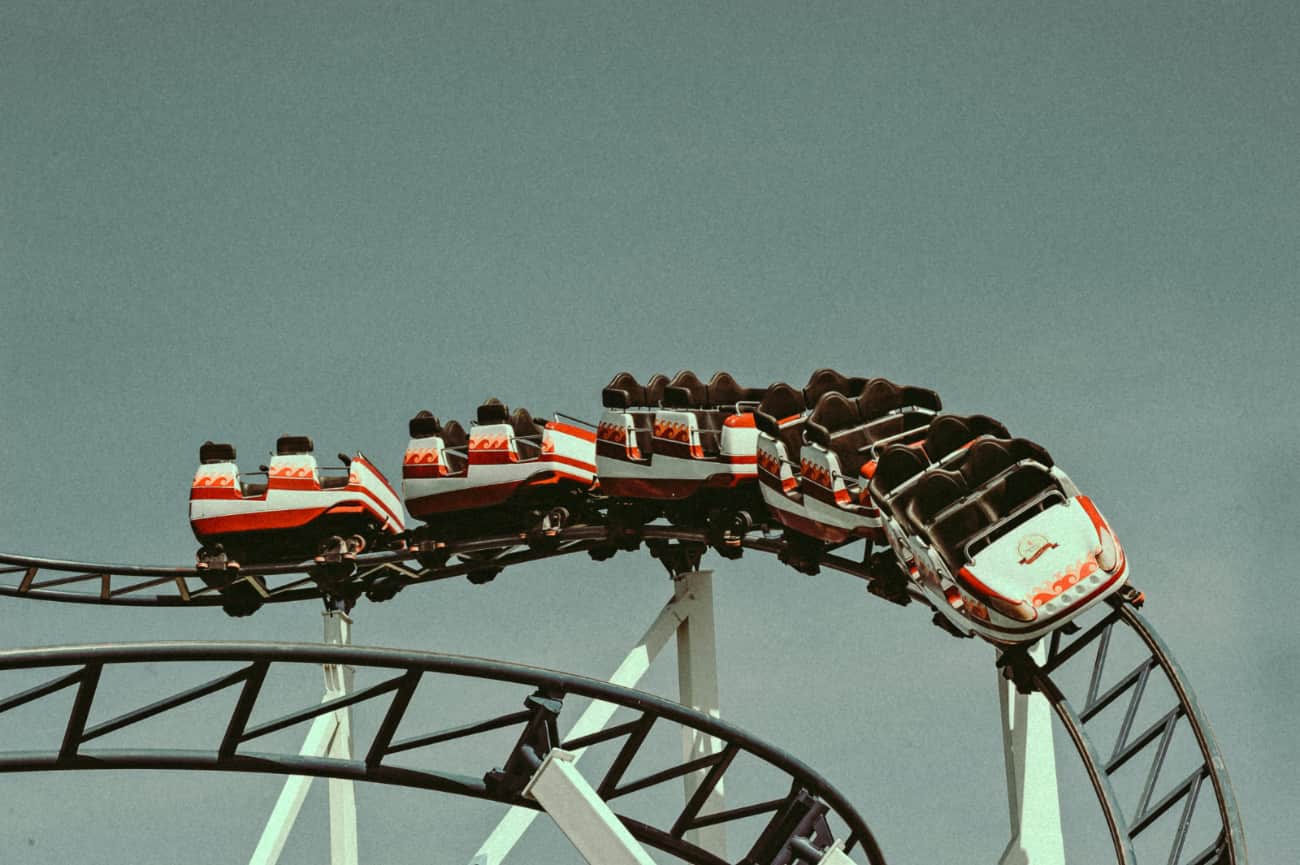When we think of bipolar disorder, we usually think of mood swings. Some low, lows, with some highs sprinkled in for good measure. While that understanding might give some people a quick definition, it is obviously an exaggerated simplification. And understanding this is crucial in the conversation about bipolar disorder and addiction.
Bipolar is not just being up one day and down the next. It is a neurological condition that scrambles your mood-regulating systems like someone completely rearranging the dishes in your kitchen without telling you.
Manic episodes—where you stay up all night solving the world’s problems—can feel thrilling. But the shadow of the dog that follows can make even putting one leg at a time in your pants feel like too much to handle.
People in this cycle sometimes just need an off-ramp. Not because they’re weak. But because the brain is trying to survive with what it can grab. So they grab drugs or alcohol.
Why Do People with Bipolar Disorder Struggle with Addiction?
The connection between bipolar disorder and addiction isn’t coincidental. There is a chemical reason someone with bipolar finds solace in substance abuse. The neural pathways affected by bipolar disorder, particularly those involving dopamine and serotonin, are the same ones hijacked by drugs and alcohol.
When your brain’s reward system is broken, substances offer the illusion of some way out, some sort of solace. Of course, most of us know that this is a bit of a deal with the devil. The damage that comes from drug use will eventually ruin everything—even that momentary relief.
But there’s more. The chemical balance in a person with bipolar disorder often leans towards impulsivity, risk-taking, and emotional extremes. Sometimes, it does not just lean towards these things, but jumps right in with both feet. These are often the calling cards for substance use.

Bipolar Disorder and Addiction: Self-Medicating
There’s more to be said about using drugs or alcohol as a means to ease the immediate problem. This is called self-medicating. Using drugs or alcohol for temporary relief feels like it works. Until it doesn’t. A drink to take the edge off anxiety. A stimulant to pull you out of a foggy depression. Something to sleep, something to feel. It’s logical, in a heartbreaking way.
But it backfires. The very substances people use to regulate their mood start to dysregulate it even more. Mania becomes more chaotic. Depression digs in deeper.
There’s also the timing problem. People with bipolar disorder may not even know they’re sick.
They just know they’re drowning. And while professional treatment feels like a massive, mysterious mountain, substances are right there, fast and familiar. It is the problem of the path of least resistance. However, in this case, the least resistant path could lead you straight into danger.
Can Bipolar Disorder Be Misdiagnosed as Addiction?
Yes. Often. Too often. When someone shows up erratic, emotionally volatile, or agitated, the immediate assumption—especially if substances are involved—is that they’re just dealing with a substance use disorder.
But the underlying bipolar disorder may be what’s been steering the wheel all along.
This is why it is so important to talk to the right professionals. People with experience both with mental health issue and substance use disorders. Misdiagnosis leads to mistreatment.
You can’t treat bipolar disorder like a simple addiction because it’s not. You also can’t treat addiction without accounting for the hidden mood disorder underneath. The two conditions wear each other’s masks. And unless a clinician knows how to look for both, they might miss what’s really going on.
What Does Dual Diagnosis Treatment for Bipolar and Addiction Look Like?
Here’s where the science finally meets the soul: dual diagnosis treatment for bipolar and addiction. It’s an approach that says, “Let’s not just fix some symptoms. Let’s understand the internal wiring that is causing this. The root issue.”
This means psychiatry and therapy. It means mood-stabilizing medications and real, personalized behavioral interventions.
It means treating the brain with the dignity of complexity.
What Is Dual Diagnosis for Bipolar and Substance Use Disorder?
Dual diagnosis programs are designed to work with both the chemical imbalances of bipolar disorder and the cravings, triggers, and habits of addiction. It’s not one-size-fits-all, and it shouldn’t be.
True healing requires nuance and patience. If your life feels like a war zone inside your own head, you deserve more than a bandage.
Signs That Someone Might Be Dealing With Both Bipolar Disorder and Addiction:
- Rapid mood shifts that don’t seem tied to external events
- Substance use that worsens mood instability
- Trouble sticking to treatment or medications
- Periods of high productivity followed by complete withdrawal
- Feeling “normal” only when using substances
What Does Treatment Look Like?
Treatment starts with stabilization—getting the body and brain to a place where they can listen again.
That often means detox, carefully managed with support. Then, psychiatry and deeper addiction treatment steps in. Mood stabilizers, often maligned in casual conversation, can quietly change lives. Medication treatment helps.
Psychotherapy helps untangle the narrative. Finding out formative aspects such as what you’ve been through, what you’re afraid of, and what patterns you keep falling into.
Importantly, this part of the journey, the delving into your deeper issues, is also about learning you’re NOT broken beyond repair.
It just means your brain is doing what it can with what it’s got, and now it’s time to give it something better.
Getting Help with a Dual Diagnosis in Orange County
At Covenant Hills Treatment Center in Orange County, we understand how overwhelming it can feel to live in the storm between bipolar disorder and addiction. But there is help—and it’s here. Our team specializes in dual diagnosis treatment that addresses both mental health and substance use, with deep clinical expertise and the kind of compassion that doesn’t flinch.
We don’t just treat symptoms. We see the whole person—the story, the suffering, the strength underneath. If you’re ready to take that first step toward stability and healing, call us at 800-662-2873. You’re not too far gone. You’re not invisible. You’re not alone. At Covenant Hills, healing is not just possible—it’s personal.








